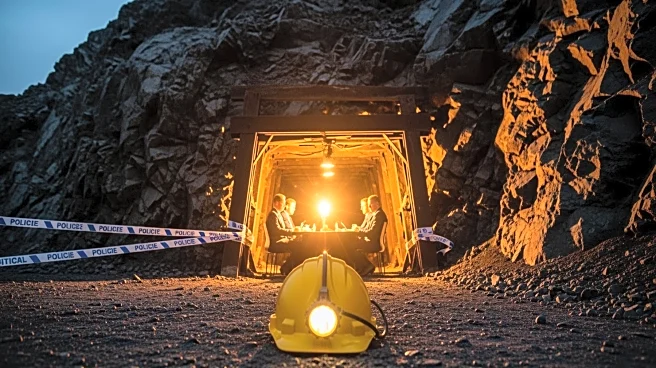What's Happening?
Russian forces have launched another attack on a coal mine in Dnipropetrovsk Oblast, Ukraine, owned by DTEK, the largest private energy company in the country. During the attack, 496 miners were underground, but all were safely evacuated without injuries.
This marks the seventh large-scale attack on DTEK's coal facilities in the past two months. The ongoing assaults have raised concerns about the safety and operational continuity of energy infrastructure in Ukraine, as Russian forces continue to target critical facilities.
Why It's Important?
The repeated attacks on DTEK's coal mines highlight the vulnerability of Ukraine's energy infrastructure amidst the ongoing conflict with Russia. These assaults not only threaten the safety of workers but also disrupt energy production, which is crucial for both domestic consumption and export. The situation underscores the need for enhanced security measures and international support to protect Ukraine's energy sector. The attacks could have broader implications for energy markets, potentially affecting supply chains and prices, especially in Europe, which relies on Ukrainian energy exports.
What's Next?
As the conflict continues, Ukraine may seek further international assistance to bolster its defenses against such attacks. The government could prioritize the protection of energy infrastructure and explore alternative energy sources to mitigate the impact of disruptions. Additionally, diplomatic efforts may intensify to address the security challenges posed by the ongoing conflict, with potential discussions involving international bodies to seek resolutions and support.
Beyond the Headlines
The attacks on energy facilities in Ukraine raise ethical and legal questions about the targeting of civilian infrastructure during conflicts. Such actions could be scrutinized under international law, potentially leading to calls for accountability and reparations. The long-term impact on Ukraine's energy sector could also drive innovation and investment in more resilient and sustainable energy solutions, as the country seeks to rebuild and secure its infrastructure.
















